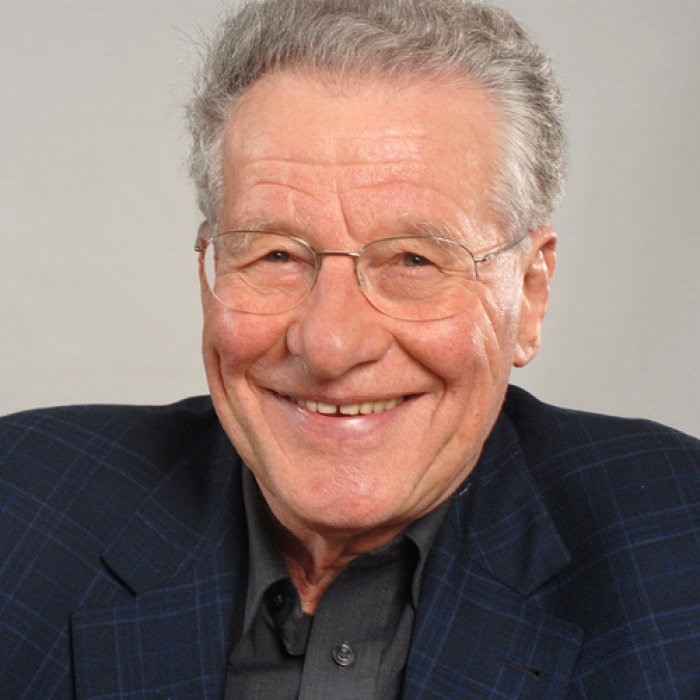A Free-Spirited Musician
Eulogy to Gerhard Wimberger

wimberger_gerhard_2011-revelinfrerk_.jpg
Photo: Evelin Frerk
Gerhard Wimberger is dead. The Austrian composer ("Passion Giordano Bruno"), who conducted the Salzburg Festival with Herbert von Karajan for two decades, died last Thursday at the age of 93. A eulogy by Michael Schmidt-Salomon.
"Austrian, hard of hearing, and very, very old!" These were the words Gerhard Wimberger used to introduce himself to his colleagues on the advisory board at the first gbs meeting he attended. With this personal description he of course had the laughter on his side - especially when he explained that he had discovered this "apt characterisation" on the driver's cheat sheet who had picked him up at the train station and brought him to the foundation's headquarters.
Gerhard had a wonderful and dry sense of humor. And it was a pleasure to talk to him about philosophy, literature, and - of course - music. This is no surprise, considering that he was an internationally renowned composer and conductor, who created great work including several operas and many instrumental works of various genres, as professor at the Mozarteum and member of the directorate of the Salzburg Festival from 1971 to 1991, he worked with some of the world's most outstanding artists. He was friends with Carl Orff and worked on an opera libretto with Erich Kästner.
He would not have told anyone all this voluntarily as boasting was unheard of him. He was always a man for the cause. Gerhard could be very persistent if he was not convinced of an argument. I remember the many discussions we had about freedom and the lack of free will. Even though we otherwise thought alike in many respects, Gerhard did not want to follow my view that our decisions are just as determined by natural law as all other phenomena in nature. At some point I realized that this reluctance was an expression of his strong concept of freedom: Gerhard, the self-thinker and free spirit, did not want to bow to anything or anyone - not even his own synapses!
Gerhard laid down his freethinking, humanistic convictions in several books, for example in the book "Glauben ohne Christentum" ("Faith without Christianity") published by Tectum. They are also the unmistakable basis of his musical works, especially his great late compositions for choir and orchestra "QUAESTIO AETERNA - DEUS - Fragen nach Gott" ("Questions on God") and "Passion Giordano Bruno".
I had a small, modest part in the creation of the last work, the "Bruno Passion": at the beginning of 2007 I visited Gerhard in his house in Salzburg and suggested that he tackle a work about Bruno and the many other victims of religious violence. When we talked about it in the evening, he said it was a "fine idea", but he himself was "definitely too old for such a project". The next morning he said, "maybe there is something I can do" - and not even three months later, he showed me the first complete draft of the score!
Three years ago the "Passion Giordano Bruno" was premiered at the Salzburg Festival and broadcast live by ORF. The concert was a complete success. The Salzburg audience celebrated the composer with standing ovations in the Great Concert Hall of the Mozarteum. Gerhard did not let it show, but the long lasting applause certainly confirmed his artistic guideline and his refusal to follow the trends within the so-called "serious music". Gerhard was regarded by many as "old-fashioned", because he composed neither "atonal" nor "serial", but stuck to the principle of tonality and the idea of musical dramaturgy of dissonance and consonance. It was not unusual for him to make fun of the "tonal painting by numbers" that was so popular among experts, and the associated "fear of harmony". For this very reason, he began his "Passion Giordano Bruno" with a musical provocation, even a "sacrilege" for many composers and music theorists, i.e. with a radiant, flawless C major chord played by the entire orchestra. It was a delightful insider joke about which I laughed a lot with Gerhard.
The day before the premiere of the Bruno Passion we had the honour to celebrate Gerhard's 90th birthday with him and his family. We sat together for a long time and admired the wonderful view of Salzburg from his house. Gerhard died last Thursday in this beautiful place. It was a shock to hear, but I was relieved that Gerhard seemingly died exactly as he had always wished. He simply fell asleep and didn't wake up. He was found sitting in his armchair with a philosophy book on his chest.
Servus Gerhard! It was a great gift knowing you! With him, the Giordano Bruno Stiftung loses one of its most active allies, and the world loses a great musician who not only had something to say in music, but also outside the musical realm. Much of it will remain - long after his death.
Michael Schmidt-Salomon
